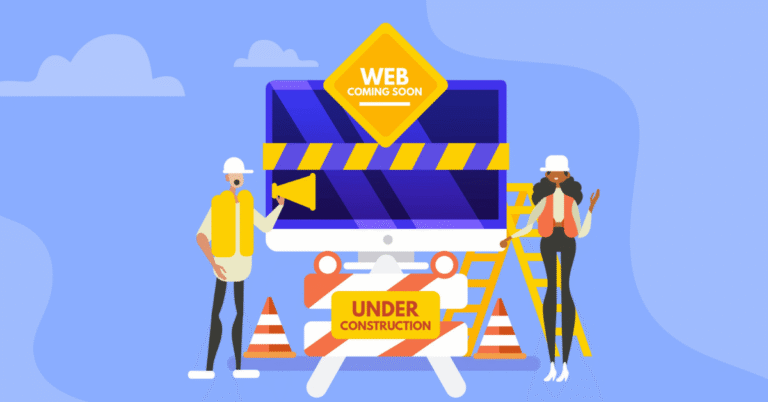Master Programming: Guide to Building Expertise in the Digital Age
In today’s tech-driven world, learning to program is no longer just for engineers and computer scientists. From business to healthcare, nearly every industry benefits from people who understand how to talk to machines. But what does it really take to master programming? Whether you’re just starting out or looking to refine your skills, this article will guide you through the mindset, tools, and strategies needed to build true expertise.
Table of Contents
- What Does It Mean to Master Programming?
- Why Programming Matters More Than Ever
- Core Concepts Every Programmer Should Know
- Table: Key Programming Languages and Their Use Cases
- The Evolution of Programming Languages
- Structured Learning Path to Master Programming
- Common Mistakes Beginners Make
- Top Platforms and Resources for Learning
- Importance of Practice and Projects
- Soft Skills That Complement Technical Expertise
- Career Opportunities for Master Programmers
- Real-World Case Studies
- Staying Updated: Lifelong Learning in Tech
- Conclusion
- FAQs
What Does It Mean to Master Programming?
To master programming means to go beyond writing working code. It involves understanding how computers interpret instructions, knowing how to design efficient and scalable systems, and being able to troubleshoot issues with precision.
It’s not just about memorizing syntax but gaining:
- Deep knowledge of algorithms and data structures
- Familiarity with multiple languages and paradigms
- Experience solving real-world problems
- The ability to write clean, maintainable, and secure code
Why Programming Matters More Than Ever
Digital transformation has made programming a core skill for the 21st century. With automation, AI, and data science taking center stage, those who master programming can:
- Build tools that scale businesses
- Analyze and visualize data effectively
- Develop innovative solutions to modern problems
- Create applications used by millions worldwide
From startups to tech giants, the demand for capable programmers is unrelenting.
Core Concepts Every Programmer Should Know
Before diving into specific languages, every aspiring developer should grasp these foundational concepts:
- Variables and Data Types
- Control Structures (if/else, loops)
- Functions and Recursion
- Object-Oriented Programming (OOP)
- Data Structures (arrays, lists, stacks, queues, trees)
- Algorithms (searching, sorting, dynamic programming)
- Error Handling and Debugging
Mastering these gives you the confidence to pick up any new language or framework.
Table: Key Programming Languages and Their Use Cases
| Programming Language | Best For | Learning Difficulty |
| Python | Data science, AI, web development | Easy |
| JavaScript | Web front-end and back-end | Moderate |
| Java | Mobile apps, enterprise solutions | Moderate |
| C++ | System programming, game development | Hard |
| Ruby | Rapid web development | Easy |
| Go | High-performance backend systems | Moderate |
| Rust | Secure and efficient system-level coding | Hard |
The Evolution of Programming Languages
Programming has evolved from machine language to high-level, human-readable languages. The early days featured:
- Assembly language for hardware control
- C for system-level programming
Later, languages like Python and JavaScript emphasized productivity and simplicity. Today, languages like Rust and Go focus on safety and concurrency, adapting to modern computing challenges.
Structured Learning Path to Master Programming
A roadmap to mastering programming might include:
- Start with the basics: Learn Python or JavaScript
- Understand computational thinking: Study problem-solving and logic
- Learn data structures and algorithms
- Build projects: Websites, games, scripts, automation tools
- Explore advanced topics: Concurrency, security, system design
- Contribute to open source
- Prepare for interviews: Practice coding challenges regularly
Common Mistakes Beginners Make
Learning to code isn’t always straightforward. Avoid these common pitfalls:
- Focusing too much on syntax and not on problem-solving
- Not practicing enough with real projects
- Avoiding collaboration and code reviews
- Jumping between languages without mastering one
- Ignoring fundamentals like algorithms or system design
Top Platforms and Resources for Learning
There’s no shortage of tools to help you master programming:
- FreeCodeCamp: Hands-on curriculum and certifications
- LeetCode, HackerRank: Algorithm challenges
- Coursera, edX: University-level courses
- Udemy, Pluralsight: Specific language and framework tutorials
- GitHub: Explore real-world open-source code
- Stack Overflow: Find answers and engage with community
Mix theory with practical experience for best results.
Importance of Practice and Projects
Reading books or watching videos will only get you so far. True mastery comes from doing. Build things you care about:
- A budgeting tool to manage your finances
- A blog or portfolio website
- A Twitter bot that posts weather updates
- A to-do app with cloud storage integration
These not only reinforce your skills but help you build a portfolio.
Soft Skills That Complement Technical Expertise
Programming doesn’t exist in a vacuum. Master programmers also cultivate soft skills like:
- Problem-solving and logical thinking
- Time management and organization
- Team communication and collaboration
- Curiosity and adaptability to new tech
- Empathy in designing user-friendly tools
These make you more valuable in any team or project setting.
Career Opportunities for Master Programmers
The job market for skilled programmers includes roles such as:
- Software Engineer
- Full Stack Developer
- Data Scientist
- AI/ML Engineer
- DevOps Engineer
- Mobile App Developer
Salaries vary widely, but those with mastery often lead teams, architect systems, or start companies.
Staying Updated: Lifelong Learning in Tech
Technology evolves rapidly. Master programmers:
- Follow tech blogs and newsletters
- Participate in developer communities
- Attend webinars, conferences, or meetups
- Regularly refactor or update old projects
- Experiment with new languages and frameworks
The learning never stops—and that’s part of the appeal.
Conclusion
Master programming is not a one-time goal but a continuous journey. With the right mindset, resources, and consistent effort, anyone can build high-level skills that unlock incredible career and creative opportunities.
It’s not just about knowing a language; it’s about understanding the art of problem-solving, the science of logic, and the passion for building tools that can change the world.
Start where you are, keep pushing forward, and don’t forget to build as you learn. That’s the true path to mastery.
FAQs
What is the best language to start with?
Python is widely recommended for beginners due to its readability and simplicity.
Do I need a degree to master programming?
No. Many successful programmers are self-taught. What matters most is consistent learning and practice.
How long does it take to master programming?
It varies by individual, but 6–12 months of focused effort can build solid foundations. Mastery can take years.
Should I learn one language or many?
Start with one and go deep. Once comfortable, branching out can broaden your problem-solving toolkit.
How do I stay motivated while learning? Set small goals, build projects you care about, and celebrate progress. Community support helps too.







